Choosing the right level of care for a loved one isn’t easy. You want safety and dignity, but also freedom and joy. In Kentucky, the terms can get confusing—assisted living, personal care, skilled nursing—each offers something different.
In general, assisted living is best for older adults who are mostly independent but benefit from some help with daily tasks, like bathing, dressing, medication reminders, housekeeping, and meals. Skilled nursing is best for people who need ongoing medical care or complex clinical monitoring—think wound care, IV therapy, tracheostomy care, frequent injections, or recovery after a hospital stay.
Learning more about how assisted living works, who assisted living is for, and how the terms are defined in Kentucky can help you feel confident about your next step.
Assisted Living vs. Skilled Nursing
Assisted Living
Assisted living environments feel residential and social, with privacy and choice at the center. Kentucky uses a unique licensing and regulatory framework that shapes what assisted living can (and cannot) provide. Understanding this helps you match your loved one’s needs to the right setting.
Skilled Nursing
At skilled nursing communities, nursing services are available 24/7 with a higher clinical focus. The day-to-day experience and level of medical care within a skilled nursing can be much more similar to a healthcare environment than a residential setting.
Kentucky’s Assisted Living Model: Independence with Support
Kentucky assisted living communities operate under a non-medical model focused on social support, personal care services, and resident choice, rather than providing ongoing skilled nursing care.
Residents receive personalized service plans that outline daily supports, such as assistance with mobility cues, medication reminders, transportation, and meal services. Most communities offer apartment-style living, where residents enjoy private apartments with a lockable door, promoting privacy and independence.
Staff can assist with medication management, though they do not administer medications in the same way as nurses in skilled settings, except as permitted by Kentucky regulations and community policies.
Many assisted living communities also coordinate with outside home health centers or therapy providers, allowing residents to access short-term skilled services (like physical or occupational therapy and nursing visits) while continuing to live in their apartments, as allowed by state rules and community policies.
Additionally, Kentucky licenses “personal care” communities, which may offer more hands-on care and some nursing oversight. Families often compare assisted living, personal care, and skilled nursing options when exploring care communities.
Safety and Oversight You Can Trust
Kentucky assisted living communities are licensed by the state and must adhere to strict standards for staffing, training, resident agreements, emergency preparedness, and resident rights. These regulations ensure that each community provides a safe and supportive environment for its residents, with regular inspections to maintain quality.
Staff members in these communities are trained in areas such as medication assistance, infection control, emergency procedures, and supporting residents with memory changes. This comprehensive training equips team members to deliver compassionate care tailored to each resident’s needs.
Resident rights are a key focus in Kentucky, emphasizing dignity, privacy, and personal choice. Residents have the right to participate in their care planning and daily routines, ensuring they remain active participants in their own lives.
The result of these efforts is an environment that feels like home while offering peace of mind through clear regulations and consistent oversight.
What Skilled Nursing Provides
Skilled nursing is appropriate when medical needs go beyond what assisted living and personal care can safely support. Examples include:
- Complex wound care, IV medications, feeding tubes, or ventilator/tracheostomy care
- Frequent assessments by licensed nurses and on-site clinical teams
- Short-term rehabilitation after surgery, stroke, or serious illness
- Ongoing monitoring for unstable conditions
Because of the higher clinical intensity, skilled nursing communities provide 24/7 licensed nursing and work closely with physicians and therapists. Daily life is more structured, and care plans focus heavily on medical stability and rehabilitation.

Daily Life
Assisted Living: Social, Spacious, and Choice-Driven
Assisted living communities are designed to provide residents with the perfect balance of independence and support, so they can enjoy a vibrant, fulfilling lifestyle. Here’s what could be offered to help make every day more comfortable, engaging, and worry-free:
- Private apartments with the freedom to decorate, prepare simple meals (as permitted), and host family and friends.
- Restaurant-style dining with flexible meal times to accommodate personal preferences and routines.
- A life enrichment calendar packed with activities, like clubs, fitness classes, outings, music programs, and faith services, to keep residents active and engaged.
- Discreet assistance with daily tasks and medication reminders, offering peace of mind while maintaining dignity.
- Transportation services for appointments, shopping, and community events, making it easy to stay connected and active.
This thoughtfully designed setup empowers residents to live independently while knowing that help is always close by when needed.
Skilled Nursing
When consistent medical attention and highly structured medical care are needed, this option may be worth considering. It includes frequent nurse interactions, scheduled therapies, personalized care plans focused on safety and medical goals, and room options to suit individual needs. Skilled nursing is ideal for those requiring 24/7 clinical oversight and:
- More frequent nurse interactions and clinical checks
- Therapies (PT/OT/SLP) delivered on a structured schedule
- A care plan centered on medical goals and safety
- Shared or private rooms, depending on availability and needs
This is the right match when health conditions require around-the-clock clinical oversight.
Ready to Explore Next Steps?
Both options aim to protect health and well-being. The right fit depends on the person’s medical needs, preferences, and goals.
You should choose assisted living if you or your loved one wants independence with support, a private apartment, and a lively social calendar, and if medical needs are stable and not complex.
If you think assisted living might be the right fit, we’d love to help you learn more. Oak Ridge Senior Living offers a warm, neighborly community experience with personalized support that honors your independence. Contact us to schedule a tour, review care options, and get answers tailored to your family’s needs.



